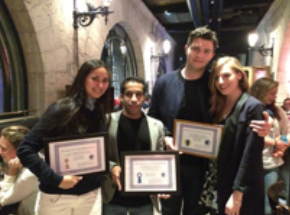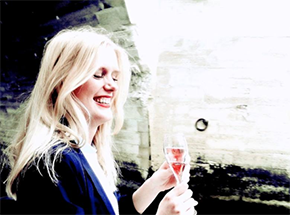- About AUP
- History of AUP
- Mission & Core Values
- Vision and Leadership
- AUP Recognition
- Alumni Success
- Campus Development
- Arts at AUP
- Policies & Guidelines
- Academics
- Undergraduate
- Graduate Programs
- MA in Diplomacy and International Law
- MA in Global Communications
- MSc in Human Rights and Data Science
- MA in International Affairs
- MA in International Affairs, Conflict Resolution, and Civil Society Development
- MSc in International Management
- MSc in Strategic Brand Management
- Find Your Thesis Advisor
- Previous Programs
- Cultural Program
- Faculty
- Summer School
- Research Centers
- The Center for Critical Democracy Studies
- Upcoming Events
- Research Projects
- Fellows’ Publications
- Publishing
- Curriculum
- Community
- Partnerships
- Visiting Scholars
- CCDS Highlights
- Atelier de Théorie Politique – Paris
- Critical Theory 101: Future Directions and New Challenges
- Martti Koskenniemi on “The Law of International Society: A Road not Taken”
- Academic Freedom Symposium
- Tocqueville Colloque 2023
- Violent Turns Conference
- Degenerations of Democracy
- DEMOS21 Inaugural Event
- What Demos for the 21st Century?
- The Paris Centennial Conference
- Justice Stephen Breyer
- Civic Jazz - The Launch of the Center
- Past Events
- FR
- The Center for Writers and Translators
- The George and Irina Schaeffer Center for the Study of Genocide, Human Rights and Conflict Prevention
- The Joy and Edward Frieman Environmental Science Center
- The Center for Media, Communication & Global Change
- The Center for Critical Democracy Studies
- Departments
- Academic Resources
- Academic Affairs
- Academic Calendar
- Academic Resource Center
- Library
- Registrar's Office
- Teaching and Learning Center
- Accessibility & Accommodation Services
- AI@AUP: A Campus-Level Initiative
- Quai D'Orsay Learning Commons
- Paris as Classroom
- ACE
- Admissions
- Student Life
- Campus
- Student Leadership & Involvement
- Paris
- Support Services
- Student Life Help Desk
- Student Accounting Services
- Student Immigration Services
- Student Grievance Procedure
- Diversity and Inclusion
- Health & Well-being
- Digital Student Handbook
- News
- Events
- AUP Giving
- Housing Offer for 2025-2026
- IT Services
- Alumni
- About AUP
- History of AUP
- Mission & Core Values
- Vision and Leadership
- AUP Recognition
- Alumni Success
- Campus Development
- Arts at AUP
- Policies & Guidelines
- Academics
- Undergraduate
- Graduate Programs
- MA in Diplomacy and International Law
- MA in Global Communications
- MSc in Human Rights and Data Science
- MA in International Affairs
- MA in International Affairs, Conflict Resolution, and Civil Society Development
- MSc in International Management
- MSc in Strategic Brand Management
- Find Your Thesis Advisor
- Previous Programs
- Cultural Program
- Faculty
- Summer School
- Research Centers
- The Center for Critical Democracy Studies
- Upcoming Events
- Research Projects
- Fellows’ Publications
- Publishing
- Curriculum
- Community
- Partnerships
- Visiting Scholars
- CCDS Highlights
- Atelier de Théorie Politique – Paris
- Critical Theory 101: Future Directions and New Challenges
- Martti Koskenniemi on “The Law of International Society: A Road not Taken”
- Academic Freedom Symposium
- Tocqueville Colloque 2023
- Violent Turns Conference
- Degenerations of Democracy
- DEMOS21 Inaugural Event
- What Demos for the 21st Century?
- The Paris Centennial Conference
- Justice Stephen Breyer
- Civic Jazz - The Launch of the Center
- Past Events
- FR
- The Center for Writers and Translators
- The George and Irina Schaeffer Center for the Study of Genocide, Human Rights and Conflict Prevention
- The Joy and Edward Frieman Environmental Science Center
- The Center for Media, Communication & Global Change
- The Center for Critical Democracy Studies
- Departments
- Academic Resources
- Academic Affairs
- Academic Calendar
- Academic Resource Center
- Library
- Registrar's Office
- Teaching and Learning Center
- Accessibility & Accommodation Services
- AI@AUP: A Campus-Level Initiative
- Quai D'Orsay Learning Commons
- Paris as Classroom
- ACE
- Admissions
- Student Life
- Campus
- Student Leadership & Involvement
- Paris
- Support Services
- Student Life Help Desk
- Student Accounting Services
- Student Immigration Services
- Student Grievance Procedure
- Diversity and Inclusion
- Health & Well-being
- Digital Student Handbook
- News
- Events
- AUP Giving
- Housing Offer for 2025-2026
- IT Services
- Alumni
Faculty
Professor Earhart
Business Administration & Management
What made you decide to move from a professional career to teaching?
I had been working part-time on my Doctorate at the Universiteit voor Humanistiek in Utrecht, Netherlands while consulting in sustainable investments, when the financial crisis of 2007-2008 happened. Most of my clients were financial institutions, so within the space of a few weeks my project portfolio went from completely full to almost nothing. I decided to pivot my activities to focus on completing my doctorate and research, which is when I was approached by some of my doctoral faculty advisors to teach courses at their institutions. I found that I very much enjoyed teaching and research. I still occasionally take consulting gigs, and I usually target projects that are related to my research areas or offer opportunities for student involvement.
What has changed the most since you first started working in marketing?
Everything. While the fundamental concepts remain very much the same, the emergence of internet-driven technologies, big data, mobile communications, and mass customization has transformed the focus of what marketing professionals do. Big data has also transformed the profession in ways that have not been fully understood, specifically in relation to branding and customer relationship management. With pricing and behavioral factors so specifically targeted, it’s hard to establish a solid brand identity and build an ongoing relationship with clients without also competing on knowledge that only big data can provide. As we move forward, a broad base of knowledge, as well as creative problem-solving and critical thinking skills will prove critical.
In the early years of your career, you worked in sustainability and corporate social responsibility. How can sustainability be understood in today’s business landscape?
Sustainability and corporate social responsibility (CSR) have matured significantly in the past decade. In the early 2000s, it was a much more niche area of professional practice, with a more activist-oriented approach, whereas now, almost every major company has a sustainability department, and there has been further specialization in the sustainability field as the area has evolved.
The broad deployment of sustainability systems to avoid irreversible environmental and social decline depends on coherent public policy but the solutions presented tend to be highly individualistic and consumer-focused. We are not going to consume our way out of our social and environmental problems, no matter how much better such forms of consumption make us feel. Robust political and public policy solutions are going to be necessary.
How does your professional background in the private, non-profit, and political sectors inform your teaching of Business at AUP?
At the outset, having a broad-base of career experiences helps me to consider management and management-related concepts from different perspectives. It also helps me offer a wide variety of examples and cases in the classroom setting, so that students can see how management frameworks can (and cannot) be effectively transferred from one industry or organizational form to another.
It has also made me more critical of the increasing adoption of private sector management techniques into the NGO and public sectors. While this has brought certain efficiencies and innovation, it may cause public and mission-based organizations to lose sight of their overall mission and original purpose.
What have you learned from your students?
AUP is such a wonderful environment for cross-cultural exchange, that I routinely learn about different forms of management practice and ethical values in classroom discussions. I often encounter a diverse set of value systems and cultural understandings in the classroom, as well as through advising and participating in extracurricular events. I feel very lucky to be in such a diverse and engaging environment – it ensures that I never stop learning.
Do you have any advice for future AUP students?
Take advantage of the social opportunities that AUP offers! You are in a classroom with peers from all over the world. These are your future colleagues, customers, business partners, suppliers, and advisors. It’s very easy to get caught up in the whirlwind of classes and to socialize with the same friends, so make a point of sitting next to someone new in each class, and joining the student groups on campus.
Likewise, it’s extremely important to cultivate a diverse base of knowledge and a variety of interests. Some of my students have landed very competitive positions not only because they have the skills for the job, but also because they have interests in common with hiring managers and prospective business partners. Nobody wants to talk to the boring person at a cocktail party, so having interests that go beyond your career and your field of study is so important.
Related
-

Business Integration Capstone
Featured Course
Read MoreBusiness Integration Capstone
Featured Course
Features a complex international business simulation that integrates material students have covered throughout their studies.
-

Iceland
Study Trip
Read MoreIceland
Study Trip
Allows you to explore and understand how place promoters have used place branding to develop a compelling national story.
-

Tove Samuelsson ’14
Alumna
Read MoreTove Samuelsson ’14
Alumna
Looking back, I feel lucky to have spent these crucial years at AUP and in Paris.
